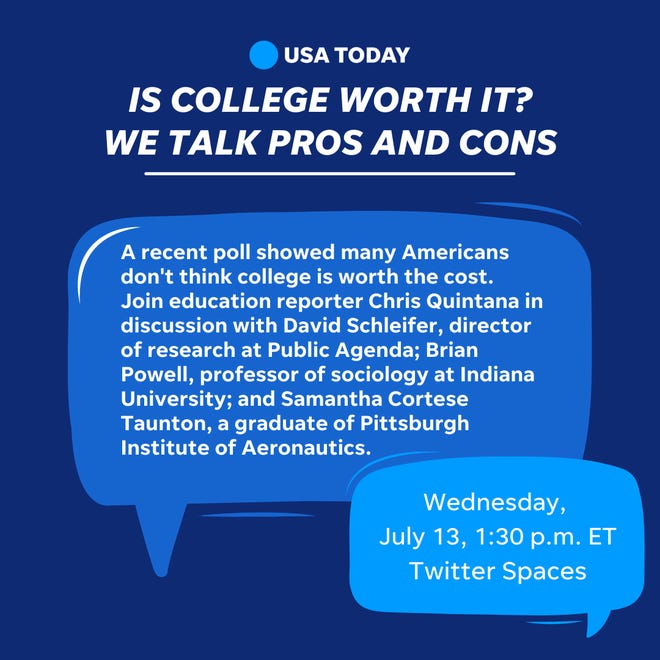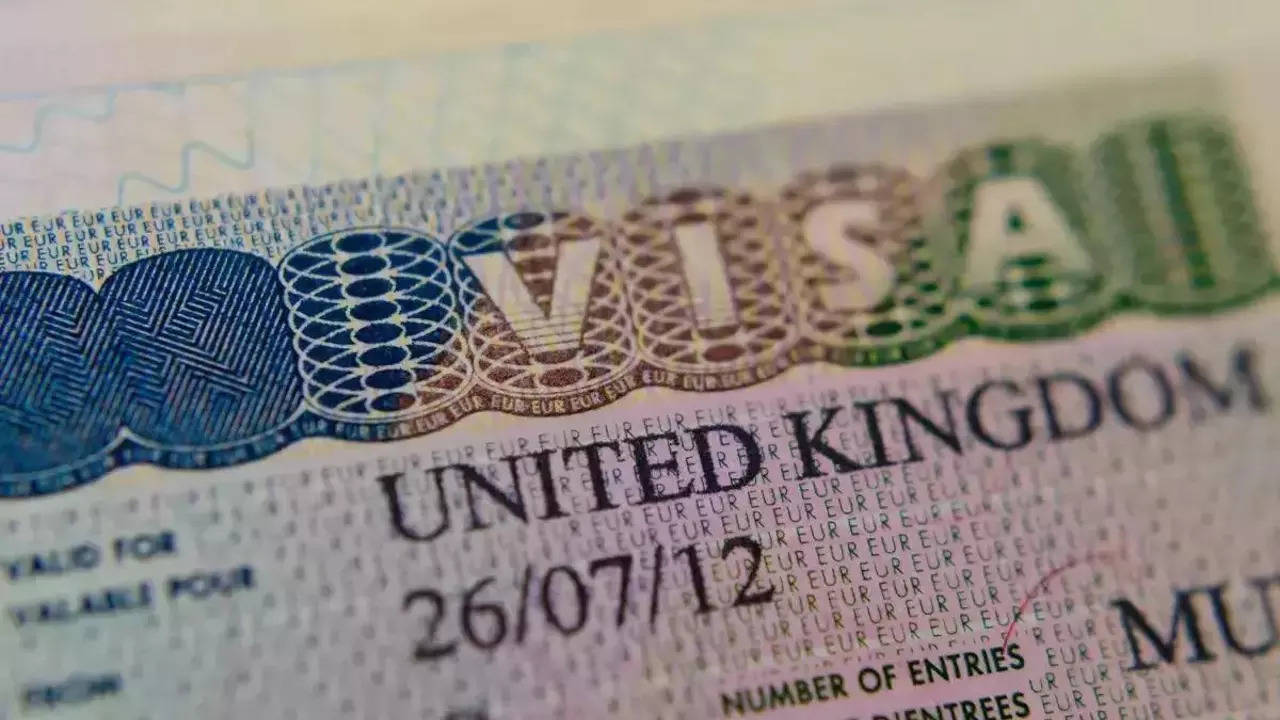How much do Americans value a degree?
[ad_1]
Many Americans question the expense and price of a higher education schooling today, in accordance to a new United states Nowadays/Public Agenda Hidden Common Ground poll. And of the various increased instruction options available, lots of see a two-12 months neighborhood school as a much more fair investment decision, according to the poll.
In terms of a sheer value comparison, it’s really hard to argue with these facts.
The value of a bachelor’s diploma method is commonly a lot greater than that of an associate’s diploma or certification application. In actuality, it expenditures just about three situations as a great deal on ordinary to go to just one yr at an in-state four-calendar year university, than it does to go to a area neighborhood faculty for the identical amount of money of time, in accordance to facts from a Higher education Board report.
And college students typically leave four-year colleges with crippling quantities of debt. On average, public faculty students walk away with about $30,000 value of loans to spend back, in accordance to the Education and learning Info Initiative.
Assist is offered:Our mental well being disaster is getting worse. New 988 suicide hotline can be our fresh new start out.
In overall, Americans have accrued extra than $1.7 trillion in pupil debt in buy to go to four-yr colleges, according to the info collection team. And lots of of them are waiting with anticipation as President Joe Biden considers whether to cancel at least a part of federal student financial loans.
So, greater instruction is too pricey. But does that necessarily signify the public thinks that faculty is not worthwhile?
School can mean greater success
For the past 10 years, Brian Powell and I (both of those sociology professors) have been conducting comparable interviews and surveys with the American public – more pointedly about the duty for the cost of university.

We have requested more than 4,000 People in america starting off in 2010 (and each individual few years by way of 2020) who ought to fork out for college or university and whether higher education and learning should be an specific great, paid out for typically by mom and dad and college students, or a collective very good, paid for typically by the state and federal government. We’ve also talked to Us citizens about what they consider of the prices in relation to the likely benefits.
I should have helped:As an Asian bystander at an anti-Asian criminal offense, why did I do almost nothing?
Most agree that achievements with no attending a 4-yr faculty is feasible. They often cite expert trades such as plumbers and electricians – jobs that learners can practice for through charge-powerful diploma or certificate courses. In point, practically all Americans concur (us included) that it’s probable to receive substantial wages and have a superior existence without the need of a bachelor’s degree.
At the exact time, Us residents also acknowledge that success is substantially additional probable with a bachelor’s diploma than without one particular.
Browse much more on poll:Is university truly worth it? Us residents say they benefit higher schooling, but it truly is much too high priced for many
To the American general public, “good” work are significantly far more abundant, and much less difficult to get, when college students have a 4-calendar year higher education instruction. Good results between these without the need of a bachelor’s degree is viewed as the exception. Accomplishment between these with a bachelor’s diploma, however, is normally noticed as the rule.
In our study, about two-thirds of Americans say college is truly worth the fiscal charge it calls for.
A lot more aid for federal government to pay
Yet, as well often, critiques of the higher charge of 4-yr faculties and universities are joined with calls to disinvest in better education and learning.
But most Us residents, in accordance to our details, mainly have the opposite reaction.
Folks are significantly more probable to endorse government funding for bigger instruction than they were being even a ten years in the past. There is also significantly far more guidance for the idea of free tuition at general public schools and universities.
Title IX:New Biden Title IX regulations would use civil legal rights office…to strip civil rights from students
In this sense, most People see widespread authorities assistance as the answer to generating college more affordable. People as a full believe that deeply in increased instruction and its means to enrich college students and communities.
Individuals just want bigger instruction and its many added benefits to occur at a reasonable price.
Natasha Quadlin is a UCLA associate professor of sociology. Brian Powell is James H. Rudy Professor of Sociology at Indiana University. They are the co-authors of “Who Need to Fork out?: Larger Instruction, Accountability, and the Community.”
Sign up for United states of america TODAY on Wednesday at 1:30 p.m. ET for a live Twitter Areas conversation on the charge of school.

[ad_2]
Resource connection







